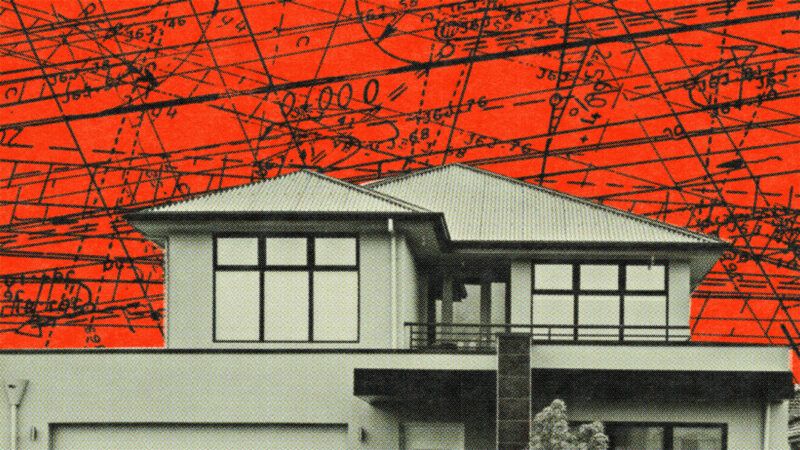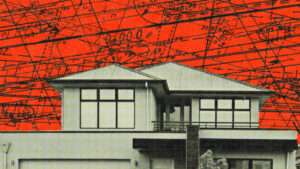Pacific Legal Foundation Symposium on the 100th Anniversary of Euclid v. Ambler Realty
The symposium is seeking submissions.


Next year is the 100th anniversary of Village of Euclid v. Ambler Realty, the Supreme Court decision upholding exclusionary zoning. I think Euclid is one of the worst supreme Court decisions ever, and exclusionary zoning - and the resulting massive housing shortage of which it is the biggest cause - is the biggest property rights issue of our time. In a recent article, In a recent Texas Law Review article, Josh Braver and i argue that exclusionary zoning violates the Takings Clause of the Fifth Amendment, and outline ways in which a combination of litigation and political action can be used to combat them. See also our much shorter non-academic article in the Atlantic.
Even many who don't agree with that position can recognize now is a good time to reconsider Euclid and its legacy. Thus, I am happy to announce that the Pacific Legal Foundation - a major public interest law firm specializing in property rights issues - is sponsoring a symposium on the 100th anniversary of Euclid, and soliciting proposals. They are organizing it together with the Mercatus Center and the Journal of Law, Economics, and Policy. Here is the announcement:
Next year marks the 100th anniversary of the U.S. Supreme Court's decision in Euclid v. Ambler Realty Co., where the Court approved of municipalities' use of their "police powers" to enact zoning ordinances excluding lawful activities from certain districts and segregating residential housing based on the housing's effects on neighboring properties. The effects of Euclid have been pervasive, since virtually all American cities and towns divide themselves into land-use districts through these public-welfare zoning ordinances.
In Euclid, land that an owner had intended to sell for industrial purposes was rezoned for residential use by a Cleveland suburb, resulting in an alleged decrease in land value of approximately 75 percent. The Court's decision provided an unqualified endorsement of the practice of land-use regulation under the government's police powers using a creative application of nuisance principles. The Court noted that "a nuisance may be merely a right thing in the wrong place, like a pig in the parlor instead of the barnyard," and, going beyond the facts of the case, singled-out apartment buildings as "parasites" amidst neighborhoods of "private" family homes.
For the past 100 years, scholars have debated Euclid's effect on housing in America and the resulting tension between states' police power protection of public welfare and constitutional property rights, due process, and equal protection. The approaching 100th anniversary of the Court's decision presents a new opportunity to take a fresh look at the decision, its significance, and legacy, and particularly what a new American land-use and zoning paradigm might look like for the next 100 years.
It's also a fitting time to assess the economic impact of zoning, how state and federal environmental regulations have contributed to driving up the costs of building, and what the future may hold for land-use regulation. Pacific Legal Foundation, the Mercatus Center, and the Journal of Law, Economics & Policy seek papers from a variety of disciplines building on the past 100 years of research and commentary to re-evaluate the foundations of American zoning and look toward the future.
Some additional details:
-
Authors of accepted papers will receive a $4,000 honorarium.
-
Papers will be presented at a symposium at George Mason University Antonin Scalia Law School in early 2026.
-
Cost of hotel accommodation and reasonable travel expenses to the symposium will be covered.
-
Papers will be published in the Spring 2026 issue of the Journal of Law, Economics & Policy.
Instructions on how to submit are available here. The submission deadline is August 15.
Here is the organizers' list of suggested topics:
POSSIBLE TOPICS
The following are possible topics of potential research papers and are not intended to be an exclusive or exhaustive list.
How should Euclid be interpreted and what is its legacy in light of the pervasive racially-discriminatory use of zoning over the decades after Euclid?
Did the Supreme Court expand state police powers in Euclid beyond their constitutional limit? If Euclid were to be reexamined today, would the Court's former holding stand up to review under the Court's reinvigorated history-and-tradition analysis?
Writers from the 1920s optimistically imagined that zoning as it was initially conceived might suffice to carry American cities forward for 100 years. Looking past Euclid and thinking broadly, what might a new land-use paradigm for American cities look like for the next century?
What has been Euclid's relationship with or contribution to America's housing crisis and how could its effects be remediated?
Should Euclid, which had been initially interpreted narrowly by some state courts, have been construed differently in light of the subsequent Nectow v. City of Cambridge case and later land-use jurisprudence?
What should be the future of Euclid on federal and state regulatory takings jurisprudence, given the arguments presented in articles like, "The Constitutional Case Against Exclusionary Zoning" by Ilya Somin and Joshua Braver?
What legislative options for zoning reform could supersede the holding in Euclid, particularly in light of bills introduced and/or passed at the state and federal levels in recent years?
Considering examples from other countries with different zoning systems, as discussed in Sonia Hirt's book, Zoned in the USA, should the United States consider a more limited form of zoning, and what might that look like?
Relatively little scholarly attention has been paid to the zoning enabling acts, which largely derived from the federal Standard State Zoning Enabling Act. What is the current status of these acts, the substance of which predates the Euclid decision, and what are some potential reforms and/or alternatives.
Since this is a PLF event, I must make the standard disclaimer that my wife is a PLF employee. However, she is not involved in the organization of this symposium, nor in the evaluation of paper proposals. Nor am I! So don't send your proposals to me (or her). Send them to Stephen Davis of PLF and Andrew Cannon (JLEP), as instructed at the website linked above.
I suppose I should also add that it was not my idea to make the issues raised in my article with Josh Braver one of the possible suggested paper topics. I didn't even know about this symposium until PLF announced it, and asked me to help promote (which I am happy to do). Conspiracy theorists won't believe it (though Volokh Conspiracy theorists might!), but it's true.
Regardless, this is a hugely important set of issues, and I hope and expect the symposium will be a success.
